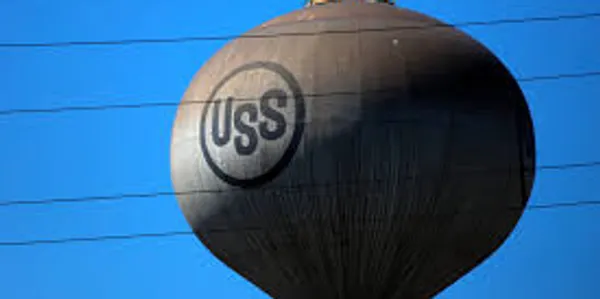Nippon Steel Finalizes $14.9 Billion Acquisition of U.S. Steel, Ensuring Pittsburgh Presence
By: Ark-La-Tex Staff Writer
In a major transnational business development, Nippon Steel has officially completed its $14.9 billion acquisition of U.S. Steel, marking one of the largest foreign takeovers of a legacy American manufacturing firm in recent years. The deal, which received final approval from shareholders and passed regulatory hurdles after months of scrutiny, preserves U.S. Steel’s historic headquarters in Pittsburgh and signals a new chapter in the evolution of the domestic steel industry.
The acquisition positions Nippon Steel, already the world's fourth-largest steel producer, to expand its global footprint, especially in North America, where demand for advanced steel in the automotive and construction sectors continues to grow. U.S. Steel, a 122-year-old icon of American industry, will now operate as a wholly owned subsidiary while maintaining its name, brand identity, and most of its management team.
Proponents of the merger highlight several key advantages. For one, Nippon Steel has pledged to invest in modernization efforts at U.S. Steel’s existing facilities, including environmental upgrades and expanded capacity for producing high-grade steel used in electric vehicles and infrastructure. This could help keep the company competitive at a time when global steel markets are increasingly driven by innovation, sustainability, and automation.
Supporters also note that the deal brings financial stability to U.S. Steel, which has faced mounting pressure from international competition, labor disputes, and fluctuating commodity prices. By joining a larger, capital-rich parent company, U.S. Steel may be better positioned to weather economic downturns and continue operations without major disruptions.
The preservation of U.S. Steel’s Pittsburgh headquarters, secured as part of the agreement, is being seen as a symbolic win for a city once synonymous with steel production. The commitment is expected to maintain local jobs and economic activity in the region.
Despite the positive outlook from some quarters, the acquisition has sparked criticism and concern from labor unions, policymakers, and economic nationalists. The United Steelworkers (USW) union voiced opposition to the deal, citing fears over potential offshoring, job security, and foreign control over a strategic American industry. While Nippon Steel has committed to honoring existing labor contracts, union leaders argue that future negotiations may become more difficult under foreign ownership.
Critics have also raised broader national security questions. Steel remains a key material in defense production, and some lawmakers have expressed concern about a vital industry coming under the control of a foreign company, even one from a long-standing U.S. ally like Japan. A handful of bipartisan voices in Congress called for additional scrutiny through the Committee on Foreign Investment in the United States (CFIUS), though the deal was ultimately cleared.
Another sticking point is whether the promises made today, like job preservation and capital investment, will be honored long-term, especially if global economic conditions shift or profitability declines.
Markets responded with cautious optimism. Shares of U.S. Steel saw a modest bump upon news of the finalized transaction, while analysts pointed to potential gains in productivity and innovation. Nippon Steel executives said they plan to prioritize “stability, technology sharing, and workforce retention” in the integration process.
Over the coming months, both companies will undertake internal reviews, seek to align their operational strategies, and begin investment planning for U.S. Steel facilities. Federal and state regulators are expected to monitor the implementation phase closely, with several congressional committees requesting regular updates on labor and environmental benchmarks.
The Nippon Steel – U.S. Steel merger reflects broader shifts in the global economy, where traditional boundaries around national industry ownership are becoming more fluid. As this high-profile acquisition moves forward, its long-term impact on American manufacturing, labor, and national industrial policy remains to be seen. What is clear is that Pittsburgh’s steel legacy will continue, now with a distinctly international partnership guiding its future.
